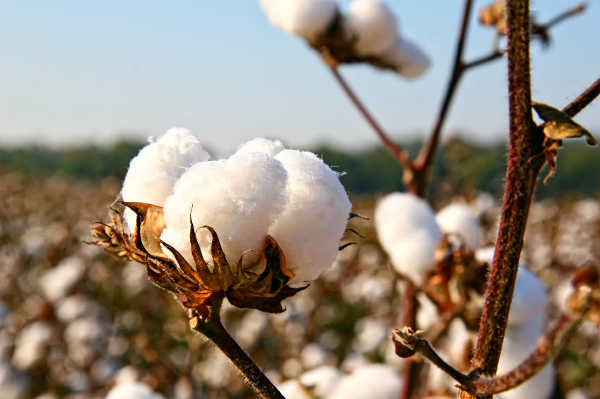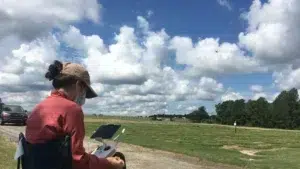Applied DNA Sciences, a provider of DNA-based supply chain, anti-counterfeiting and anti-theft technology, product genotyping and product authentication solutions, has signed a Cooperative Research and Development Agreement (CRADA) with the United States Department of Agriculture (USDA).
The CRADA will enhance APDN’s proprietary identification methods of cotton species and cultivars (subspecies), collectively, trademarked as fiberTyping. This enhanced fiberTyping will genetically verify multiple types of individual cotton cultivars, and assist the cotton industry in protecting quality, traceability and economic investments. For example, enhanced fiberTyping will be able to differentiate cotton based on country of origin and could ensure that cotton from countries known to use child labor would not be incorporated into tested products.
APDN has been granted an option to negotiate an exclusive license for any Inventions made by USDA or jointly made by APDN and USDA.
“Our collaboration with the USDA will accelerate our ability to identify key cultivars for specific cotton growing regions based on our patented technology. We believe the synergy of our expertise, together with the expertise of the cotton genomics experts at USDA, will result in a library of key cotton genome targets for commercial use,” said Dr. Mike Hogan, VP of Life Sciences at Applied DNA Sciences. “Consequently, we will be able to identify the fibers that are most desirable, and exclude fibers that are harvested from regions known to use forced or underage labor.”
Already proven in commercial use, APDN’s current fiberTyping methods are used to analyze cotton products, and confirm with precision the presence of Gossypium barbadense DNA (or Pima Extra Long Staple) and/or Gossypium hirsutum DNA (or Upland). Applied DNA Sciences is the exclusive owner of the US patents No.8,669,079, and No.8,940,485 related to fiberTyping and genotyping based methodologies for cotton.
APDN utilizes its expertise in molecular sciences for the development and manufacture of source-verification testing and security taggants for commercial and governmental implementations. Over the last 12 months, APDN has provided DNA for forensic-grade tagging, authentication and tracking for 100 million pounds of cotton now flowing through the supply chain onto store shelves.
The USDA, through its Agricultural Research Service, Genetics and Sustainable Agriculture Research Unit works to expand knowledge of the genetics and molecular biology of cotton. Using this CRADA, APDN intends to verify desirable claims for cotton such as whether it is sustainably or organically grown, free of the impact of human trafficking or child labor and source-verified.
Dr. James Hayward, CEO of Applied DNA Sciences stated: “APDN’s commodity genotyping services will enable its customers to fight fraudulent claims in natural fibers, woods, dietary supplements and foods (such as olives, coffee, fish and other foods). We will make the world more ‘real and safe.'”












